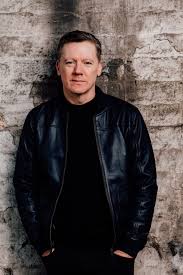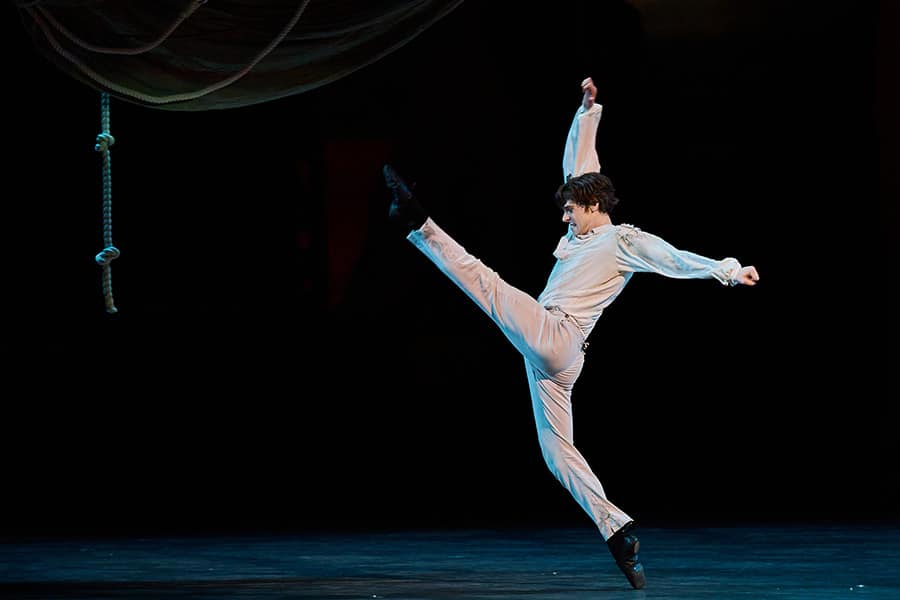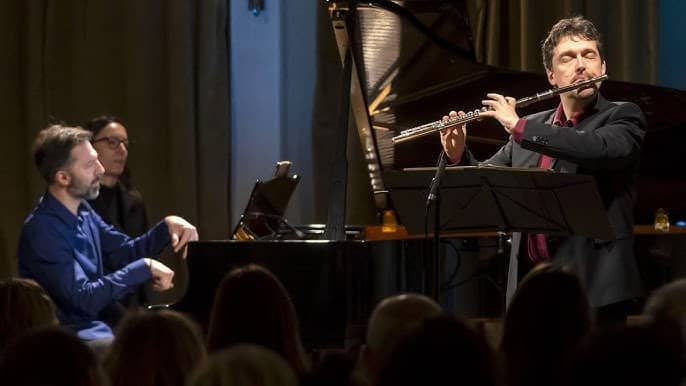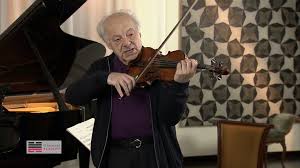Edinburgh Festival chief: We can’t go back to how we were
mainA thoughtful statement from Fergus Linehan:
Over the last 30 years or so, it’s been easy to be drawn into a world in which the arts are framed as part of a wider economic regeneration agenda that’s all about tourism and never-ending growth. But now, I think there is a real change of political mood under way; and we’re recognising that that old approach is no longer sustainable either environmentally, or in terms of the real value of the arts, which are so much more than just a branding exercise. The Edinburgh International Festival has always had an international mission, of course. But it shouldn’t be beyond the wit of man to make it both a festival for the wider world, and a festival for Edinburgh and all its people; and I think that after a year in which, for once, we don’t have to produce a festival on a tight schedule, none of us are going to have any excuse for not coming up with some brilliant new thinking about what an international festival might look like, in those new times.
That’s serious stuff, and much needed.

More here.





I have been critical of the Festival in the past particularly under the previous director Jonathan Mills but Fergus Linehan has shown here that he is taking time to reflect on both the Festival’s future and indeed Edinburgh’s future. I write about this in my article in the Edinburgh Music Review Hugh Kerr
I say again. EdFringe should be curtailed and for Ed to spread programme across Edinburgh and Lothian’s. Ed Book Festival must find a new home. EIF must continue to work on outreach programmes.
One of the strenghts of the Fringe is its decentralised nature. I attended a handful of EIF concerts in 2018, one of which was the best concert I have heard anywhere *ever* (/Siegfried/ with the Hallé under Mark Elder). While there, I was delighted to discover the variety and innovation of the Fringe (the standard was variable, but was sometimes very high). Meanwhile, from the perspective of the artists and promoters, the Fringe affords a rare opportunity to obtain a platform and garner an audience at a relatively low cost.
So what, exactly, does Alan mean by his proposal that the Fringe must be “curtailed”?
Blah, Blah, Blah, burble,burble, burble. If this portentous statement has any meaning at all, could someone please explain to me what it is ?
I hope what the meaning is that we can’t just make the festival for tourists and have put on works that the locals want to see. The festival and fringe have relied on appealing to a rather narrow section of the public coming from distance, while ignoring the people that live on the doorstep. Both the epidemic and the economy mean that isn’t going to be happening in the medium term.
So this is to address those times when tourism is restricted but not local gathering? Won’t happen.
If the world economy is facing the worst downturn since the great depression, how many tourists do you think there is going to be? How many Americans are going to spend 5-8 hours in a cramped aircraft after the epidemic? Transport and accommodation cost money and the number of people having the ability and willingness to spend it is going to fall.
I think we need to be careful not to think in binary terms of “locals” vs “tourists”. Although wealthy people from North America are certainly an influential demographic (arguably, too influential) in the Edinburgh Festival, they are by no means the only type of “tourist” (if we define “tourist” as anybody who does not live in/near Edinburgh). Whilst one should not ignore the “locals”, it should be remembered that festivals *are* an effective and efficient means of gathering together audiences with specialist/niche/minority interests. Without festivals that cater to these “tourists”, opportunities to enjoy said specialist/niche/minority interests would be even more concentrated in London than they already are.
I very much enjoyed my very brief visit to Edinburgh in August 2018 to hear a handful of EIF concerts (one of which was the best concert I have heard anywhere *ever*: /Siegfried/ with the Hallé under Mark Elder) and a few Fringe events, and would certainly consider returning again — the main factors for me are whether I find the EIF programmes interesting enough, my diary, and the availability of reasonably priced accommodation (a very rare commodity in August 2018). And, once the pandemic is under control, I would certainly be willing to spend 4–5 hours on a LNER train (LNER is the franchise that runs most London–Edinburgh trains, and their new trains are certainly *not* “cramped”).
Majority of tickets sold at EdFringe and EIF bought by locals.
A reflection as smart as it is risky because it has the courage to question a model in relation to new and dramatic circumstances. It would be easier to keep quiet or go to common places. But I wouldn’t pay anyone for that. The future will not be easy.
There’s a certain grim humour in watching super-rich international arts organisations suddenly confronting the reality of how most arts organisations work, most of the time. Using locally-based artists, working within strict financial parameters, flying in major stars on rare occasions rather than routinely, working to build an audience rooted in the surrounding community….well, how very bold and innovative! Welcome to our world…
I love this idea “for everyone in Edinburgh” .Never have I known such a non cultured bunch in my life. I am Scottish, I lived in Edinburgh for 10 years, I have been attending the Edinburgh Festival since 1972. The residents of Edinburgh consider the Festival to be an interruption to their normal daily life.
I wish you well with an international festival supported from Edinburgh. Hope springs eternal!
Bernard Levin used to write about ‘The annual Grudging of the Money’ when Edinburgh’s Council made their contribution to the Festival fund.
If it is restricted to people from Edinburgh, then it won’t be an international festival.
It depends on which circles you move! 🙂
I do think it’s important to remember the Edinburgh Festival’s beginnings. After World War II the old traditional European arts festivals could not be held due to the devastation on the continent. The initial Edinburgh directors all came from a musical/operatic background and this understandably became the Festival’s main focus. It was only really Frank Dunlop
and the present director who came more from drama backgrounds.
What is so different in the 2020s from 1947 is that Edinburgh now hosts many major arts offerings throughout each year. What therefore is the rationale of the Festival today? For example, what is the point of spending dwindling resources on overseas orchestras who also appear at the Proms or elsewhere in Britain?
Where is the originality that saw Beyond the Fringe, the Diaghilev Exhibition, the outstanding Ninagawa theatre productions and the stunning Berganza/Domingo/Abbado Carmen?
The Festival has chugged along on more or less the same formula for decades. It’s surely time for a rethink and a change of programme direction.